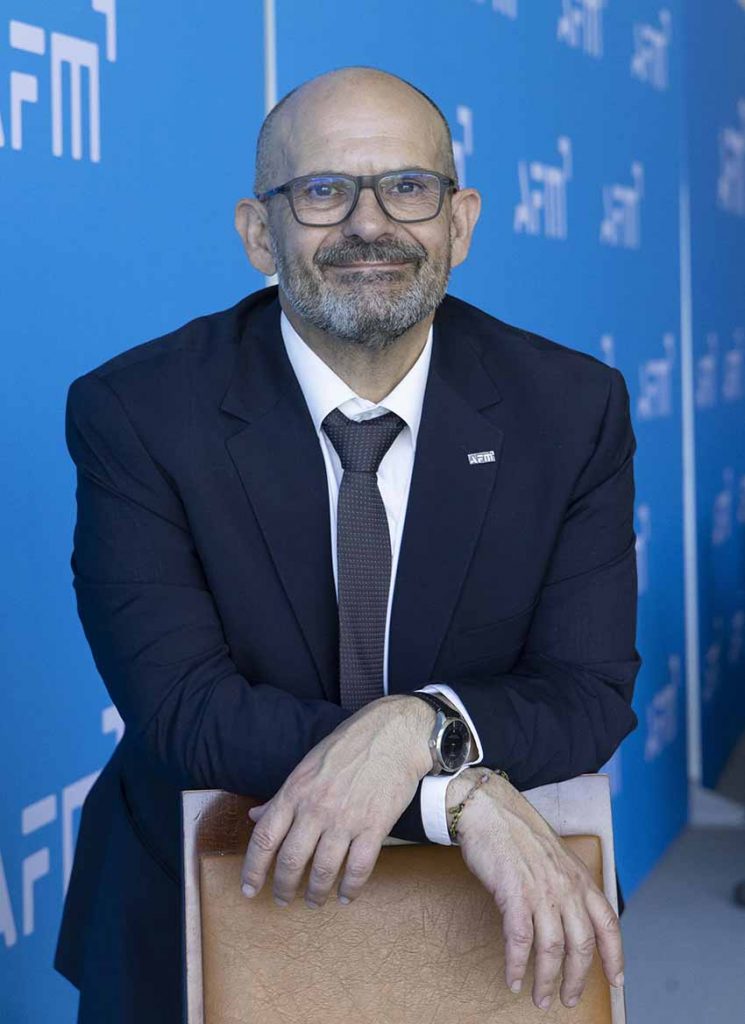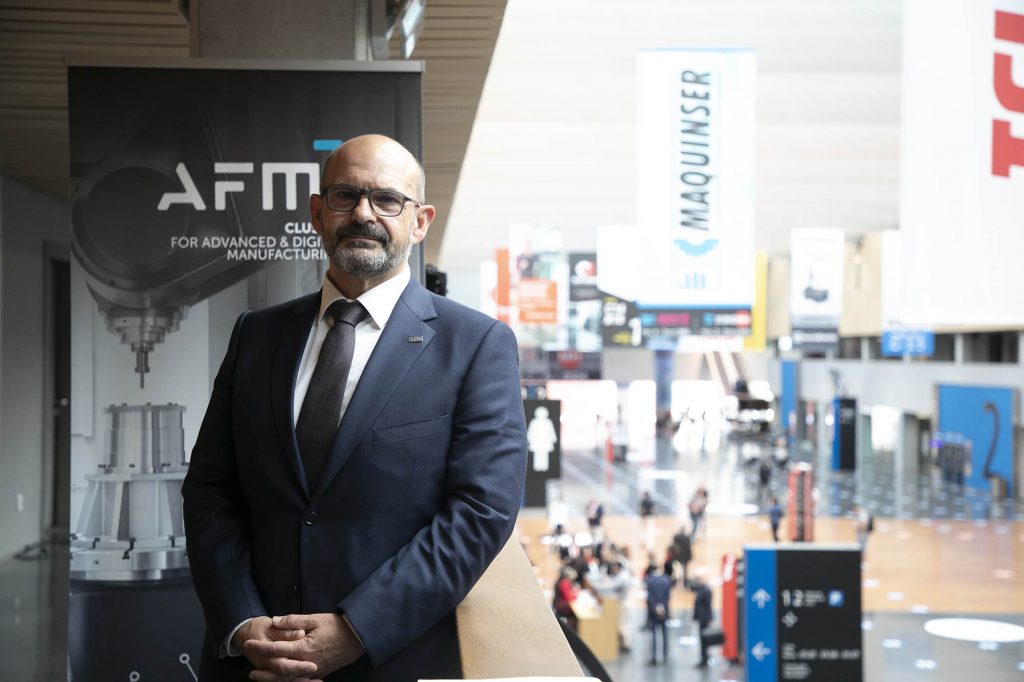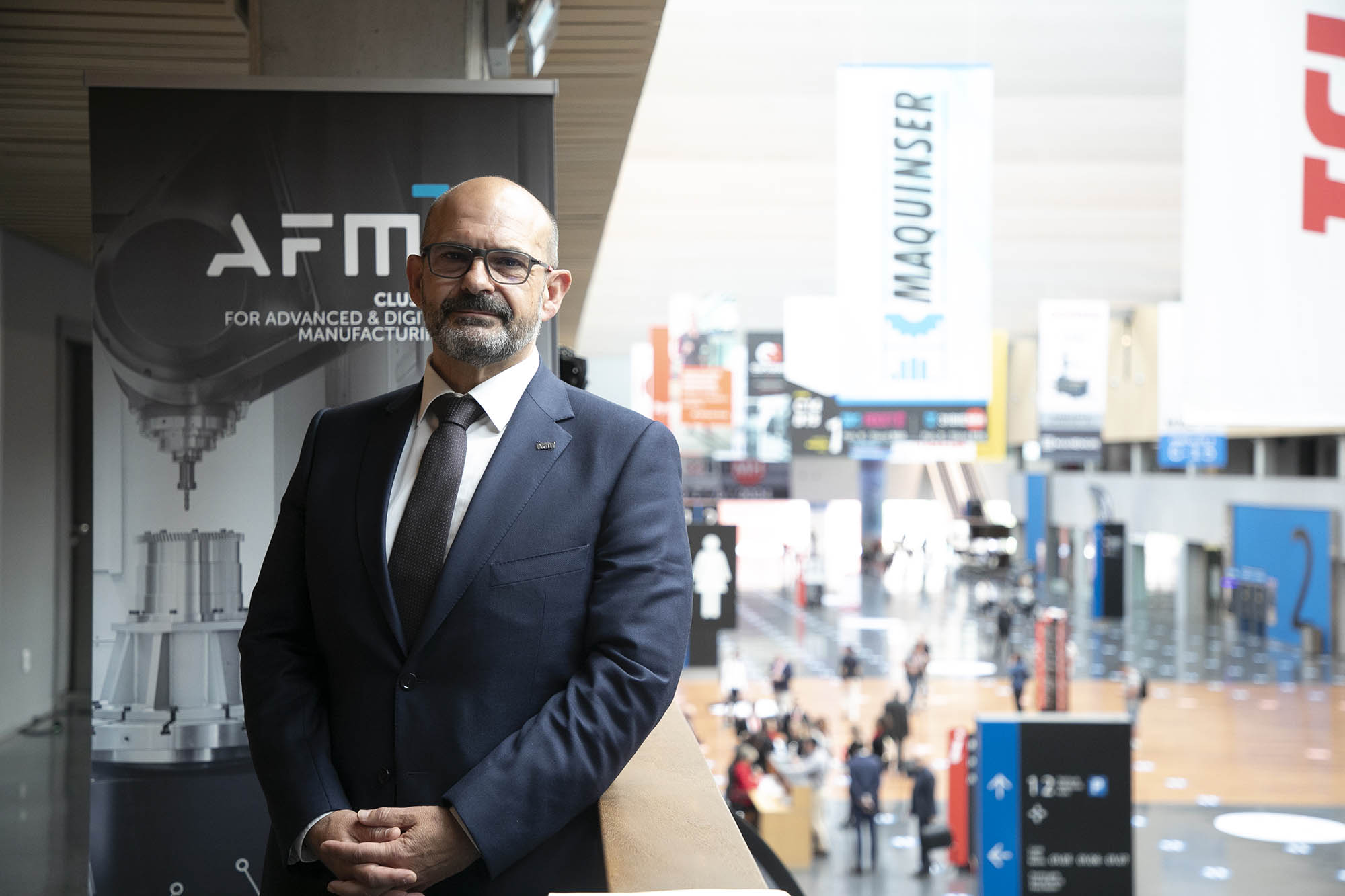AFM CLUSTER is the organization that represents the interests of advanced and digital manufacturing in Spain. Formed by seven associations, it brings together more than 750 industrial companies that employ 17,000 people and have a turnover of more than 3,800 million euros.
Its main objectives are the defense of industrial activity and its positioning as a key activity for the achievement of a more balanced and sustainable society, the promotion of collaboration and cooperation between companies to enhance synergies and promote growth, the promotion of internationalization, technological innovation and training of the people of its member companies and now, especially, the digitization and automation of industry and the advancement of the sector towards the connected industry.
Interview with José Pérez Berdud, President of AFM Cluster.
Easy Engineering: A brief description of the organization and its activities.
José Pérez Berdud: AFM CLUSTER has its origins in AFM, an association of machine tool, component and tool manufacturers, created in 1946 and therefore, the first of all industrial associations in Spain. Over the last ten years, AFM has been adding new associative initiatives in the field of manufacturing technologies: in 2014, it created ADDIMAT, the association of additive manufacturing technologies and 3D printing; two years later, in 2016, it integrated ESKUIN, the handtool, hardware and industrial supply cluster, and created AFMEC, the association for contract manufacturing and metal-mechanical transformation; and in 2019, it created UPTEK, to accommodate start-ups and technology-based companies with an industrial orientation. Later in 2022, STECH was founded, an association of smart technologies for the manufacturing industry that brings together all players in the development and promotion of Industry 4.0. Finally, this year AFM has welcomed inside AIMHE whose mission is to represent and defend the interests of the machine tool importer and distributor sector in Spain.
As a result of this expansion process, still active, AFM has, as of today, 126 associates; ADDIMAT, 109; ESKUIN, 20; AFMEC, 186; UPTEK, 150; STECH, 110 and AIMHE, 52 together with other 100 companies that offer services for the industry, reaching a total of 750 companies associated to AFM CLUSTER.
E.E: What are the main areas of activity of the organization?
J.P.B: One of the main activities that we develop in AFM Cluster is related to the international positioning of our companies. We promote the participation of the companies on international events and trade fairs and we organize trade missions to strategic countries and regions for our member companies, in order to establish contacts and learn first-hand about business opportunities abroad. We also offer accurate and updated information on the main markets and customer sector thanks to our platform AFM DATA. Therefore, we are glad to look into cooperation opportunities with Romanian companies.
We also focus on the promotion of technological innovation and R&D&I projects and cooperation. Addressing problems jointly allows us to deploy our full potential and achieve results that would not be possible individually. To this end, we carry out technology watch tasks, coordinate different working groups around topics of interest (such as sustainability or digitization), organize events to bring together technological supply and demand, guide companies towards disruptive technologies, etc.

Through our Eureka office (SMART Cluster) we make calls for international cooperation R&D&i projects in the field of manufacturing. In 2023 the projects of the 6th call are being evaluated. In total we have secured funding of more than €120m.
Another area of activities we offer is the training and recruitment of talent for the industry. We are promoting our employment platform JOIND.es, which we want to be the benchmark in terms of employment and talent attraction in advanced manufacturing. It is important to highlight in this area that AFM CLUSTER has IMH CAMPUS, its own education center of reference, that provides us with vocational training, university degrees, and talent of high value for companies.
E.E: What’s the news for 2023 about new directions?
J.P.B: We are facing two major transitions that affect industry as a whole, but especially advanced manufacturing: digitalization and sustainability. Industry 4.0 needs advanced, modern and connected equipment, and sustainable, digitized and efficient processes. In addition, as discussed above, we need well-trained people, who are the cornerstone of our success.
E.E: What can you tell us about market trends?
J.P.B: Machines are becoming more and more multifunctional, offering several machining alternatives in a single set up, which are added to its main capacity. This allows us to finish parts in a single run, increasing quality and reducing costs and time.
Advanced manufacturing and its associated technologies are what make other industrial activities competitive. Just as the best racing driver, however good he may be, cannot compete if it does not have the most technologically advanced car, it is difficult for an industrial company to be competitive if it does not have the most advanced production means in terms of precision, performance, quality, etc. Bearing in mind that a machine tool is the element with the greatest data processing capacity in a production plant, we must also be able to use this data to deliver advanced services to our customers to make them more productive, sustainable and profitable.
In addition to the permanent need to seek high efficiency in certain types of parts, there is also a clear trend towards flexible automation, in which intelligent mobile platform configurations on which robots are placed to perform all kinds of functions, coexisting with people in the plants, are beginning to abound.
In the field of sustainable mobility, we see the emergence of new equipment combining welding and machining, for parts related to battery housing.
Additive manufacturing also brings us a growing contribution in general complementary, in various types of parts. We are talking about cases of complex interior geometries, for example, in molds, the need to lighten and adjust the amount of material, serial customization, repair of expensive parts, etc., where 3D printing is finding its way strongly.

In the coming years, I see that digital technologies will continue to provide interesting capabilities. On the one hand, I would highlight the field of simulation of machines, processes and plants through digital twins. On the other hand, the incorporation of solutions (e.g. machine learning, AI, etc.) that will make machines increasingly intelligent and autonomous in deciding how to ensure that equipment is productive and accurate for longer, and in optimizing the return to the customer.
E.E: What estimations do you have for 2023?
J.P.B: At 2022-year end, the closing turnover figures for the advanced manufacturing and machine-tool technologies sector confirm the provisional figures forecast back in January, recording a growth of 8.85% with respect to 2021 figures. Despite huge uncertainty and difficulties that have made the year into a real obstacle course for investment in production resources, the good level of incoming orders accumulated throughout 2021 and 2022 has enabled the sector to continue increasing turnover.
In 2022, incoming orders figures were good for both metal cutting and metal forming, which regained its stride after several tenuous years. With a 11.28% increase in orders throughout the year, the accumulated portfolio means that 2023 has kicked off with a growth in turnover.
This upward trend in incoming orders has continued throughout the first three months of 2023, although at a slightly slower pace. Despite this, we have managed to match incoming orders recorded in the first quarter of 2022. The measures adopted to cool off the economy affect demand and the cost of financing and this can influence incoming orders and the pace of decision making, especially for the simpler equipment and in the SME setting. We have, however, detected great dynamism in the larger, more technically complex projects, which are holding steady despite difficulties. In any event, our businesses’ positive order portfolios and the good start to the year, suggest that 2023 turnover is set to grow by 5%.

